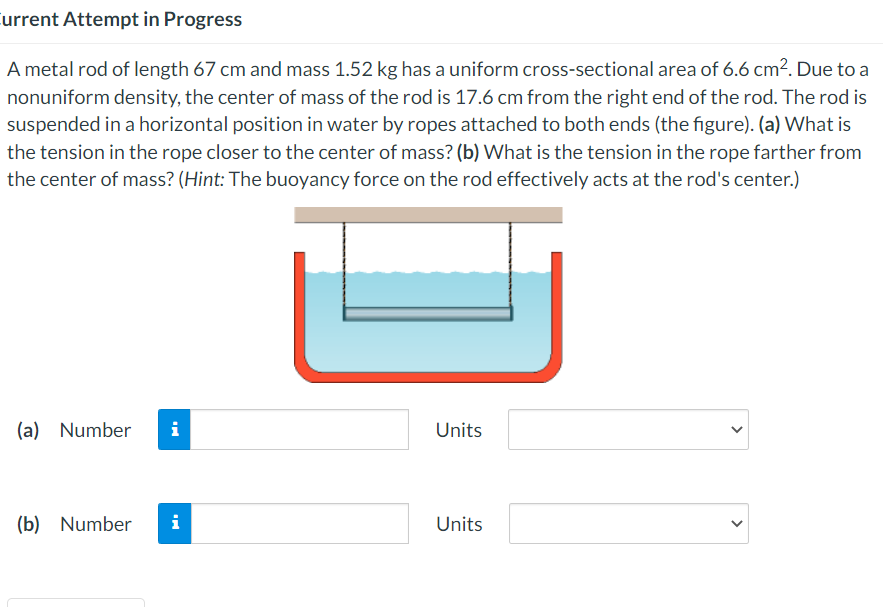A metal rod of length 67 cm and mass 1.52 kg has a uniform cross-sectional area of 6.6 cm2. Due to a nonuniform density, the center of mass of the rod is 17.6 cm from the right end of the rod. The rod is suspended in a horizontal position in water by ropes attached to both ends (the figure). (a) What is the tension in the rope closer to the center of mass? (b) What is the tension in the rope farther from the center of mass? (Hint: The buoyancy force on the rod effectively acts at the rod's center.) (a) Number i (b) Number i Units Units < <
Fluid Pressure
The term fluid pressure is coined as, the measurement of the force per unit area of a given surface of a closed container. It is a branch of physics that helps to study the properties of fluid under various conditions of force.
Gauge Pressure
Pressure is the physical force acting per unit area on a body; the applied force is perpendicular to the surface of the object per unit area. The air around us at sea level exerts a pressure (atmospheric pressure) of about 14.7 psi but this doesn’t seem to bother anyone as the bodily fluids are constantly pushing outwards with the same force but if one swims down into the ocean a few feet below the surface one can notice the difference, there is increased pressure on the eardrum, this is due to an increase in hydrostatic pressure.

Trending now
This is a popular solution!
Step by step
Solved in 3 steps with 1 images






